
The war in Ukraine is having a profound effect on children and their families, with the ongoing use of explosive weapons in populated areas causing high levels of death, suffering and upheaval.
According to the Office of the High Commissioner for Human Rights (OHCHR), 408 children have been killed and 750 injured since 24 February – because these are just the verified figures, the true toll is thought to be far higher. Most civilian casualties recorded were caused using explosive weapons with wide-area effects, including shelling from heavy artillery, multiple-launch rocket systems, missiles and air strikes.
Ukraine’s Ministry of Education states that 2,601 education institutions, including schools, universities and other facilities, have been damaged, and 309 have been destroyed.
Unicef spokesman Joe English says: “Even for those who have escaped the physical harm of shelling, the losses are deep and lasting: psychosocial trauma with long-lasting effects, the loss of education, of the hospitals and medical centres providing critical care, and of the sense of home – of a place to grow up happy and healthy.”
On Friday the Explosive Weapons In Populated Areas (EWIPA) conference took place at Dublin Castle to adopt a political declaration on strengthening the protection of civilians from the humanitarian consequences arising from shelling populated regions. Unicef continues to call for an immediate ceasefire in Ukraine and for all children to be protected from harm, and urges states to sign up to the EWIPA political declaration.
These are just some of the countless stories from children in Ukraine who have had their worlds turned upside down by the war with Russia and shows the struggle they are in to put their lives back together.
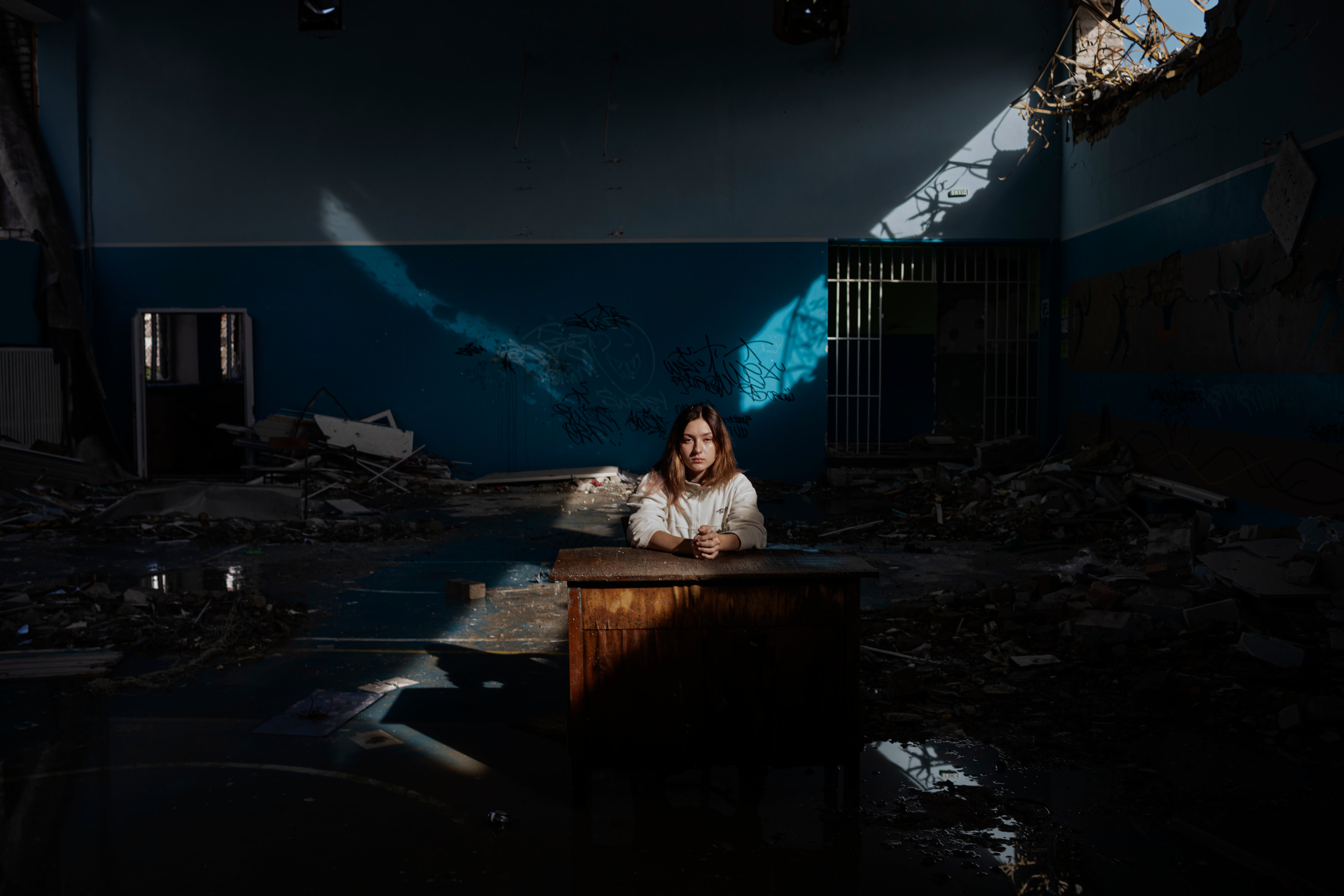
Sixteen-year-old Daria Kechenovska’s school in Zhytomyr was completely obliterated on the morning of 4 March by a missile strike. She had studied here for the last 11 years. She says: “I want to become a soldier to defend my country.”
Darya Nikolayenko is another student who had their school in Chernihiv destroyed by shelling. “War is the worst thing that can happen to humanity,” Darya says. “My school was my second home. When I saw what happened to it, I felt I would never forgive it.”
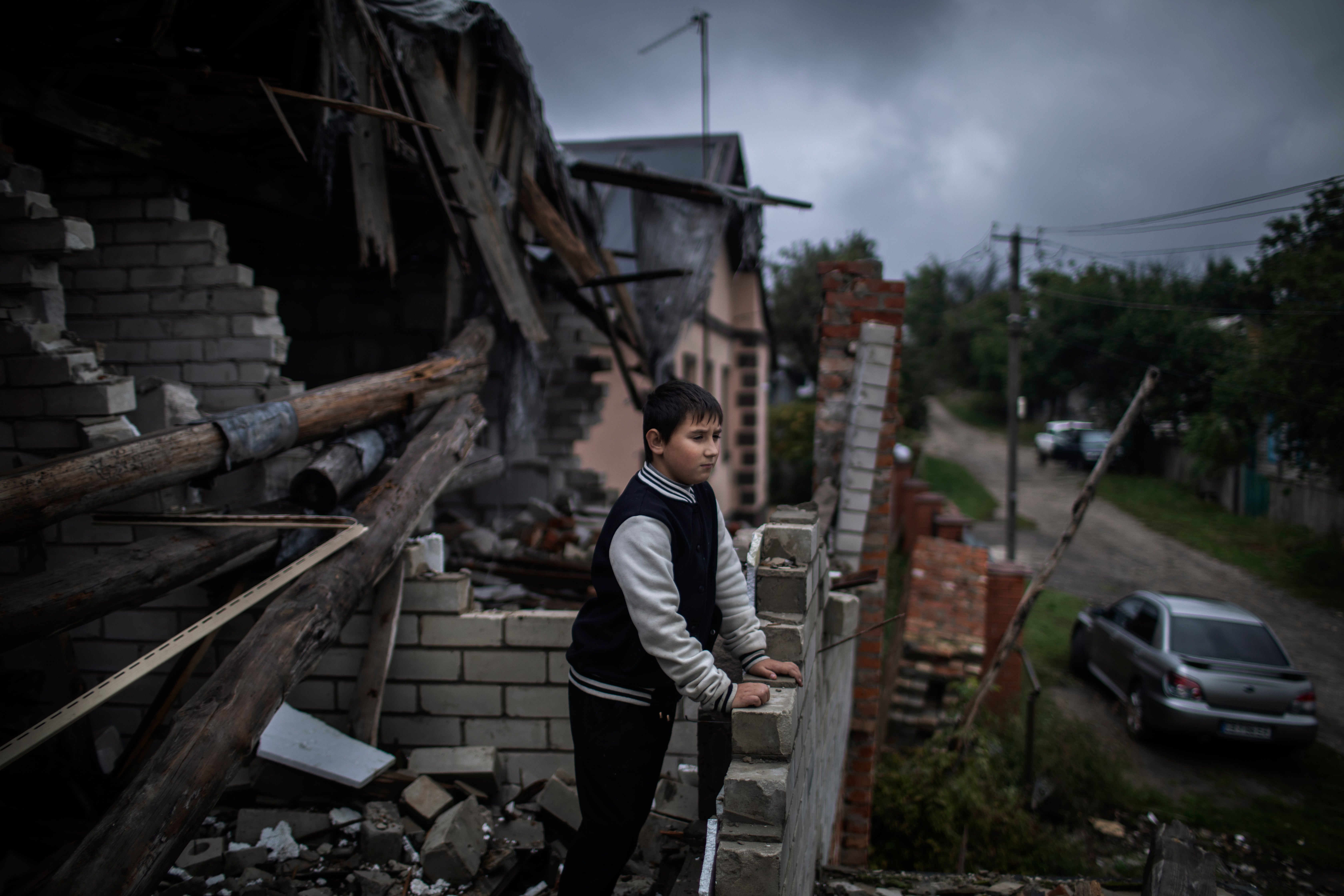
Mykhailo Misha had his home destroyed during a siege of the city of Chernihiv in February. There were 30 houses in his street, but because of the war only eight remain liveable.
As the days and nights grow colder, Misha and his mother, Olena, work to clear rubble and to cover open spaces with plastic to help protect themselves from the elements.
“My school was destroyed because of the war; that’s why I must go to a new school now,” Mykhailo says. “I dream of being back at my old school because I have friends and teachers. My house is also destroyed. I struggle with online education because I can’t see my friends.”
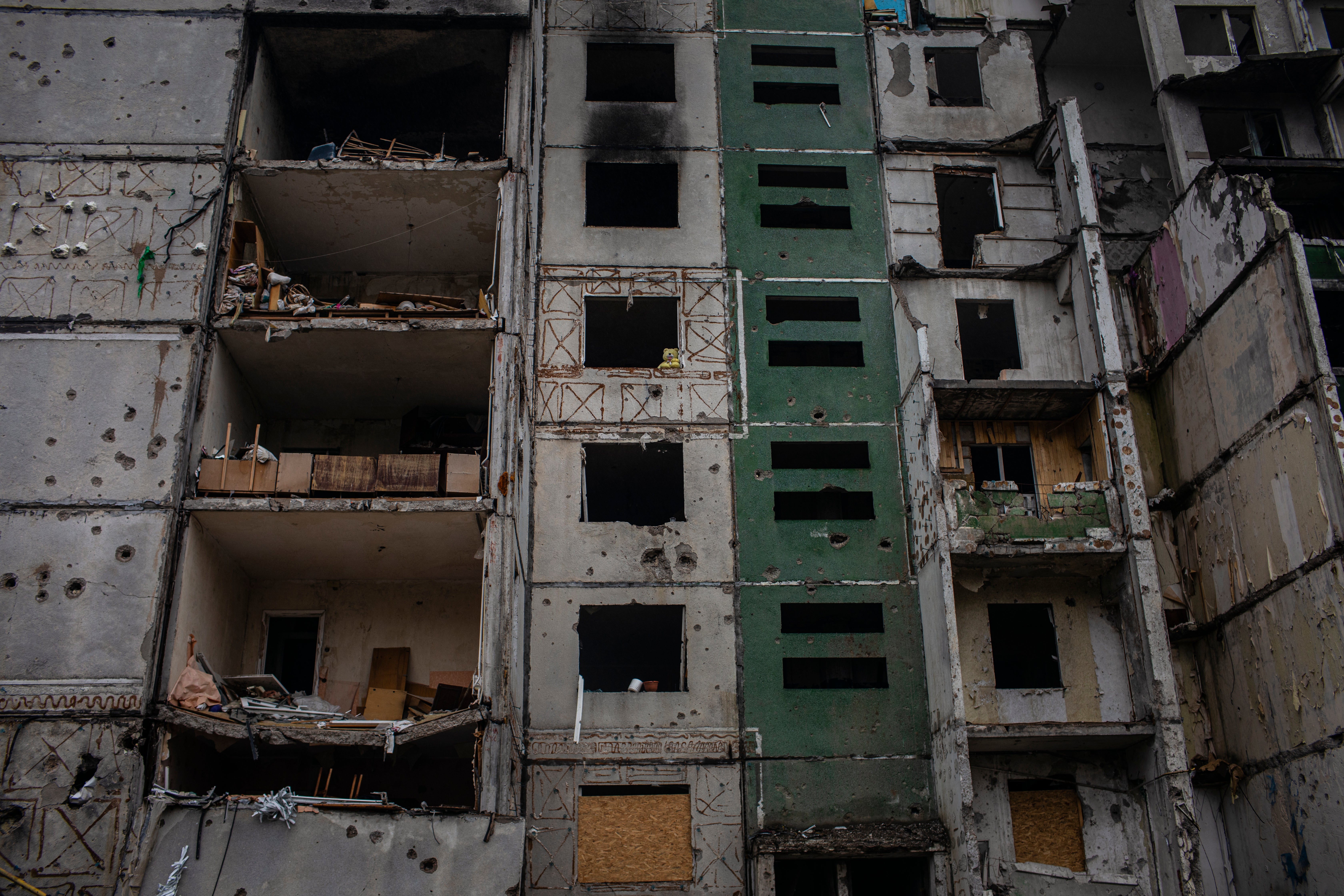
The explosive weapons used in the attacks on Chernihiv inflicted civilian casualties, including children, and caused considerable damage to essential infrastructure and services.
Children in the besieged city are preparing for the upcoming winter season, raising significant concerns for their survival and wellbeing because families are unable to heat their homes due to the damage and destruction, lack of access to adequate shelter and overall lack of access to electricity or fuel.
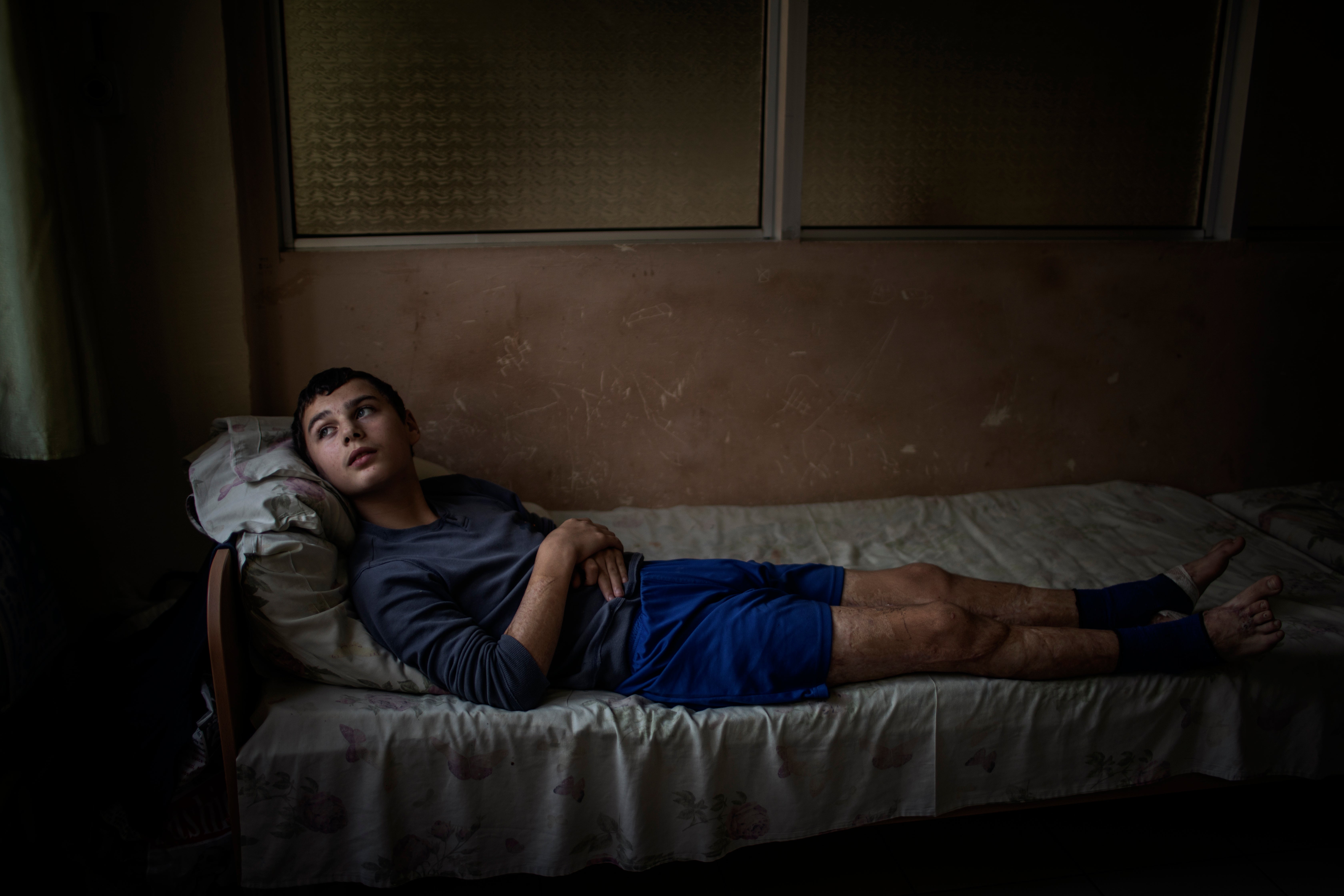
Mykhailo Baev, 12, needed medical treatment after a rocket hit the yard near his home on 7 July. The bombing killed his father and injured him and his little brother Kyrylo Baev, 10. They were evacuated by train to Dnipro. Mykhailo has two fragments inside his head that continue to threaten his life.
“War is evil because it takes everything from good people,” he says. “Once all of this is over, I want to become a chef. I want to go out and eat pizza. It’s so boring being here all the time, but at least I’m feeling safe.”
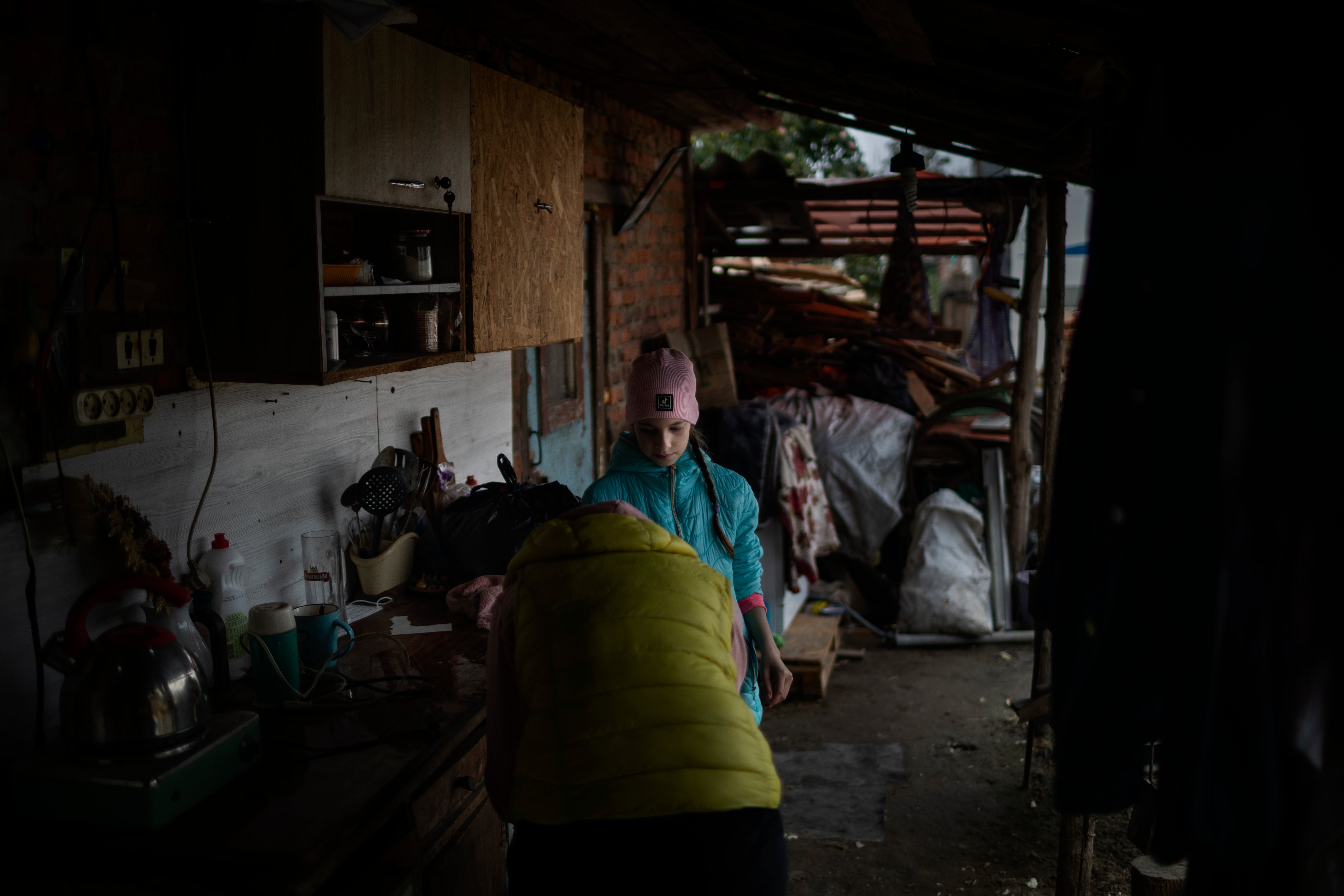
Nine-year-old Veronika lives in temporary accommodation for internally displaced people in Chernihiv. Her home is lacking gas, electricity and water due to shelling. The family rely on water bottles delivered to the area. “I’m going to miss my home and school,” Veronika says. “But I can’t visit because of the sirens. I don’t want to spend more time in the school shelter.”
Her mother Tetiana says: “The winter is coming, and it is going to be hard. We don’t know what to do. We have some bricks and wood but it’s not enough. We need help because we can’t live in this house. We don’t know what to do.”
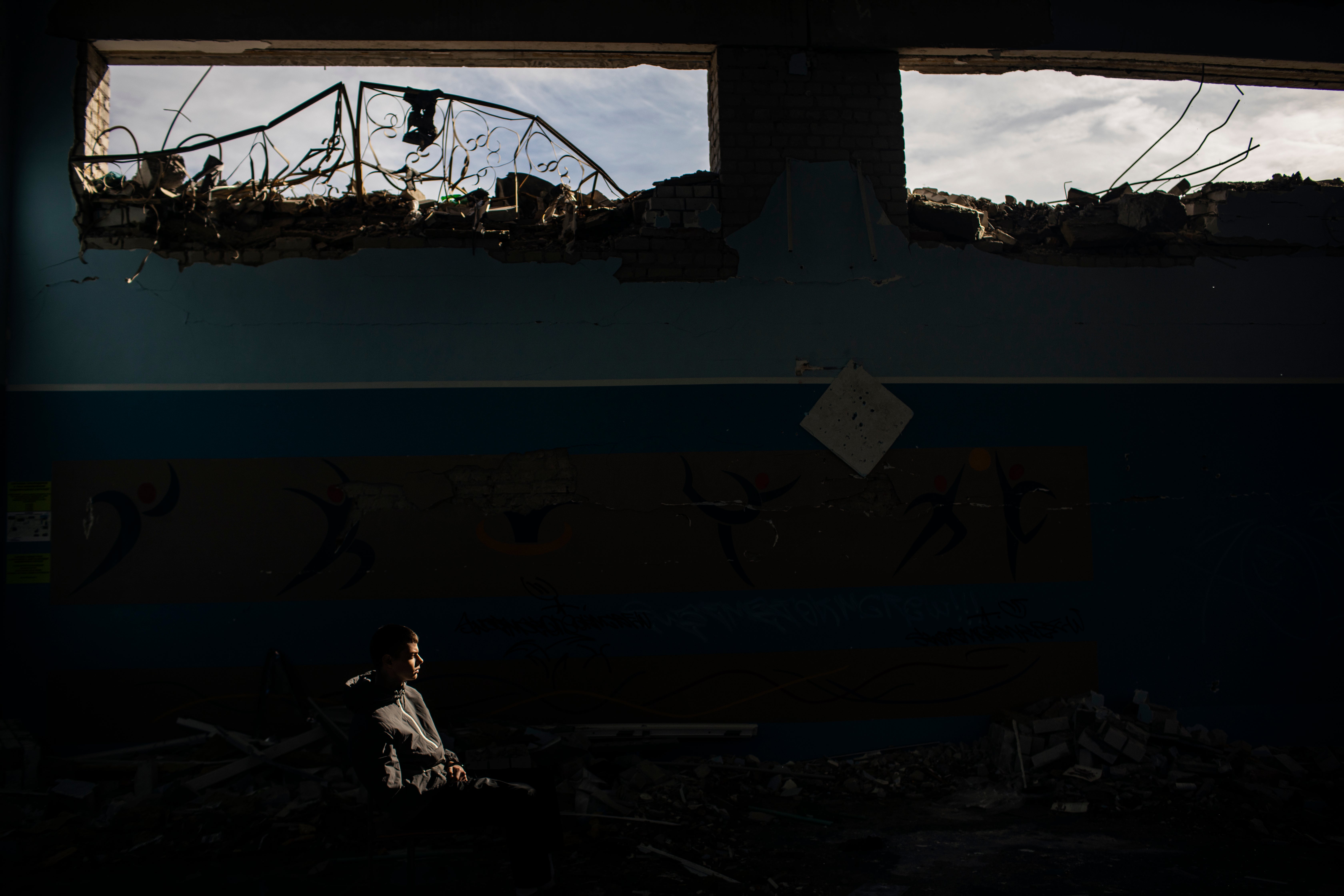
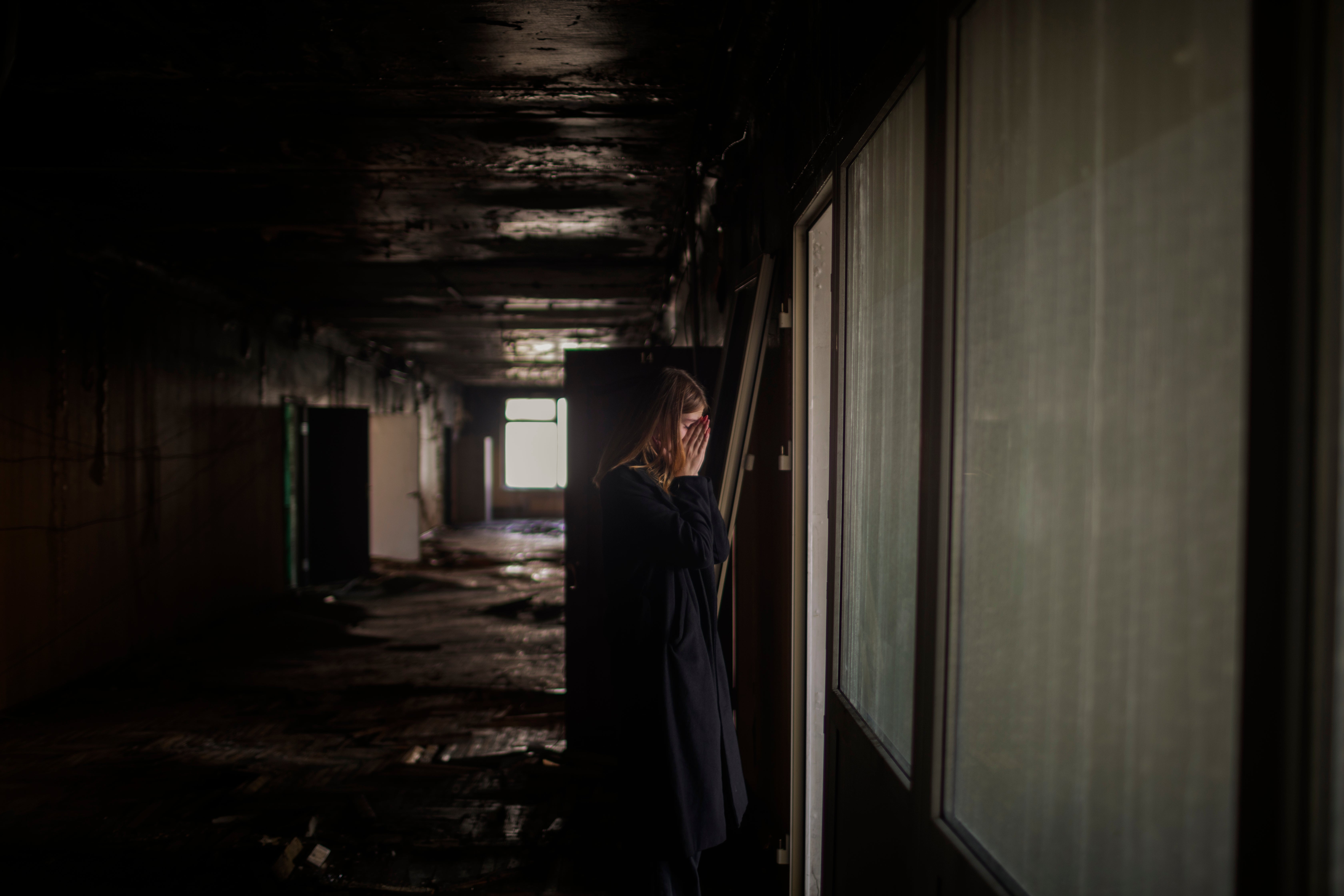
Student Olexandra Lomachuk breaks down and cries while revisiting her destroyed classroom in Irpin. On 24 March, she read on Facebook that her father was missing. She says: “My father told us to get out of here, but stayed. I called him several times, but his phone was off. Since that day, he started coming to my dreams and talking to me.”
Another schoolchild named Vlad says he feels that his opportunities have been ruined by the war. “I want to run my own company one day,” he says. “But the war is wiping out my dreams. A lot of people have been killed.”
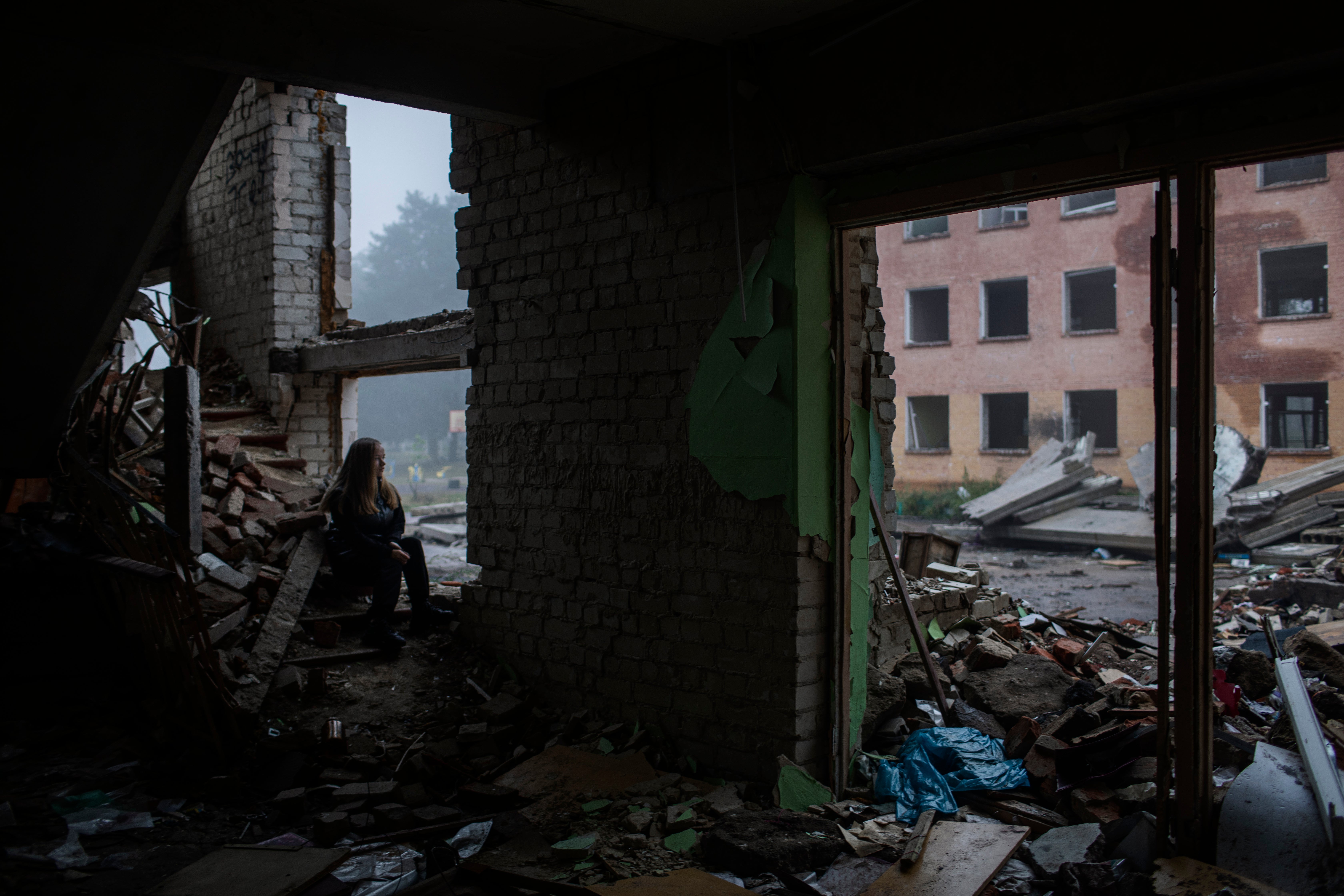
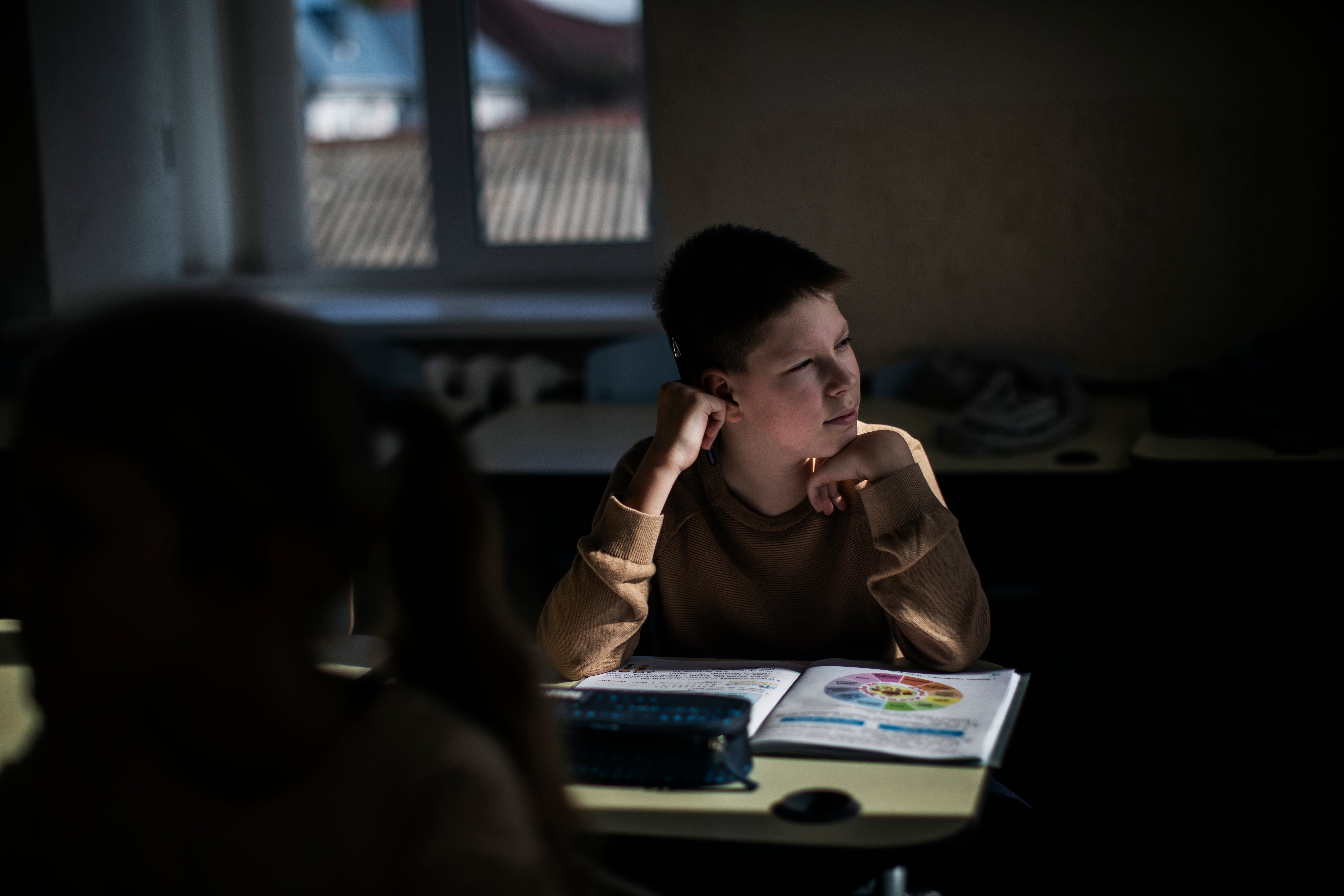
One student named Sviatoslav, from Zhytomyr, has benefited from Unicef’s work in preparing safer classrooms for students. He says: “When my school was destroyed, I was in shock. I didn’t know how to continue my studies or what to do next. First, we followed online classes and started to look for new schools that weren’t bombed. Now I am attending another centre. It’s good here too, but my old school feels better. I am grateful for the help of Unicef because they helped us renovate this building that was empty for the last five years and build a bomb shelter.”
Unicef currently assists 1,154 schools (almost 10 per cent of all schools in Ukraine) and will soon increase support to standalone kindergartens as well. But more needs to be done and more than 5.5 million children need humanitarian assistance as they continue to suffer the deadly consequences of a brutal war.
Unicef says: “Even in times of war, children, their homes and the world around them should be protected.”
It’s hoped that the adoption of the EWIPA political declaration on Friday will strengthen the protection of civilians from shelling in populated regions and hold nations to account if they fail to protect civilian populations.
You can learn more about the EWIPA political declaration and Unicef’s work here.







